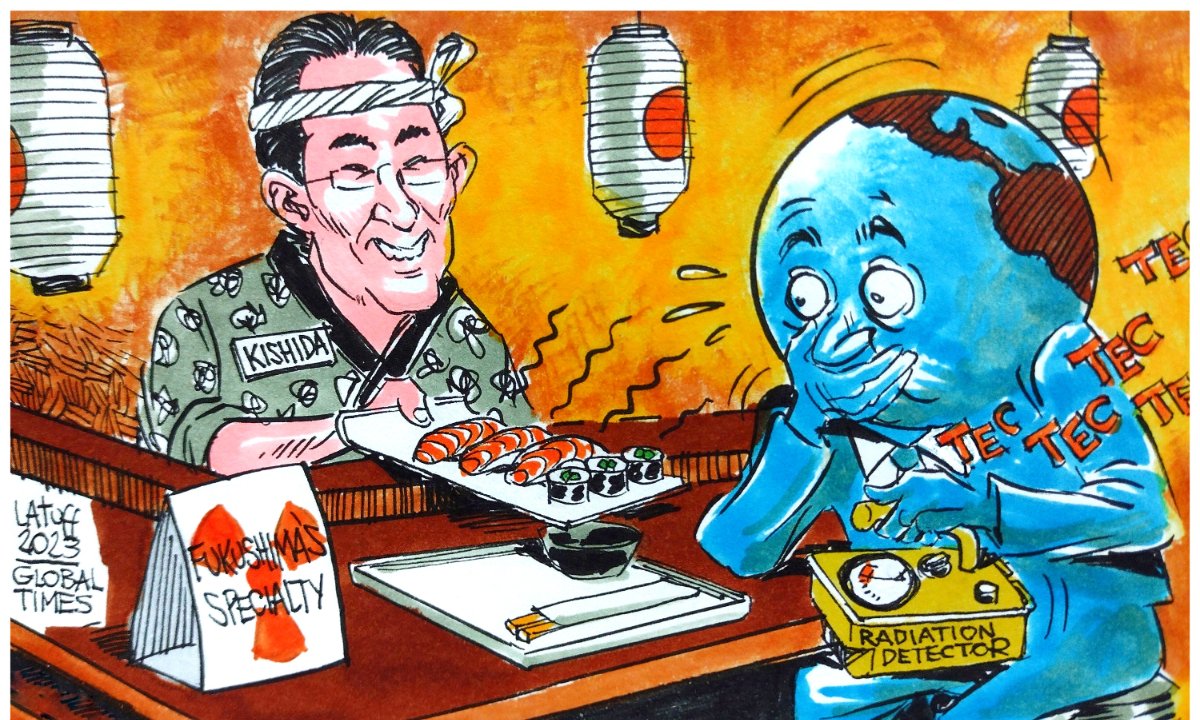Chinese social media users have recently been vocal in their astonishment and criticism of the Japanese government’s decision to discharge nuclear-contaminated water from the Fukushima Daiichi nuclear power plant into the sea. They believe that the Japanese government is resorting to various tactics to downplay the dangers associated with this disposal, and some have even alleged that blame is being redirected towards China.
On the Chinese social media platform, Sina Weibo, a trending topic encapsulating this sentiment is “Japan is employing despicable means to shift blame onto China.” This topic has garnered more than 340 million views. Many netizens have insinuated that Japan might never acknowledge the mistakes associated with this decision.
Etsuro Totsuka, a seasoned Japanese lawyer, stated that the Japanese government often avoids admitting breaches of international law. He referenced Japan’s historical reluctance to acknowledge or apologize for its actions leading up to and during the War of Resistance against Japanese Aggression (1931-45). This, he believes, mirrors their stance on the Fukushima water disposal.
China’s sentiment towards Japan, shaped by historical events and recent decisions like the Fukushima water disposal, is evidently affecting economic relations. There’s been a notable decrease in interest for Japanese tourism and products. Chinese media outlets have reported a surge in cancellations of trips to Japan.
The global community has been apprehensively observing Japan’s decisions surrounding the Fukushima water disposal. Some claim that the Japanese government’s actions appear more like those of a reality show rather than of a responsible nation-state. While many international media outlets have reported an anti-Japan sentiment growing in China, some allege these reports are exaggerated and based mainly on unverified claims by Japanese government sources.
In a recent press briefing by the Chinese Foreign Ministry, a reporter questioned Wang Wenbin, the spokesperson, about China’s stance on the Japanese dumping issue. The question pertained to whether China would advise its citizens to maintain calm, drawing attention to unverified news about Japan’s ecological threat to global waters. Wang emphasized that China consistently ensures the safety and rights of foreigners in China, adhering to its laws. He challenged the scientific foundation of Japan’s decision, questioning why there remains significant opposition within Japan if the decision is truly science-based. Wang urged Japan to reconsider its decision and prioritize the environment.
To showcase its commitment to safety, Chinese authorities have deployed police officers around the Japanese embassy. The Global Times observed this heightened security presence. Additionally, Wang informed the media about the formal representations China has made with Japan. The Chinese Embassy and consulates in Japan have experienced disturbances, and China has urged Japan to address these disruptions legally and ensure the safety of the Chinese diplomatic entities, businesses, residents, and tourists in Japan.
China’s ambassador to Japan, Wu Jianghao, has also reported disruptions at the Chinese embassy and consulates, specifying that they’ve been inundated with harassing phone calls from Japan, hampering their normal functions.
Interestingly, just a day after Japan initiated its water disposal process, the Japanese Embassy in China issued a warning for Japanese individuals in China to be cautious about speaking loudly. Some Chinese analysts believe that this portrays Japan as attempting to paint itself as the victim, reminiscent of their stance during historical events like World War II. These analysts argue that the overarching sentiment from Japan, both from its government and media, is that releasing the nuclear-contaminated water is a justifiable action, portraying Japan as a victim and others as agitators.
Observers have sardonically commented that the Japanese portrayal is so self-assured that one might mistakenly believe Japan is purifying seawater instead of polluting it.
Liu Jiangyong, a professor at Tsinghua University, has noted that Japan’s public relations maneuvers seem meticulously orchestrated to combat negative global opinions. He highlighted the importance for China to be wary of Japan’s public relations tactics that might try to wrongfully place the blame on China.
NHK, a Japanese broadcaster, recently reported that Japan allocated approximately 70 billion yen ($478 million) in its 2024 budget to counter “disinformation” regarding the contaminated water dumping. This isn’t a new trend; since announcing the water dumping plan in April 2021, Japan has consistently spent substantial amounts on public relations to manage its global image.
Read More:
